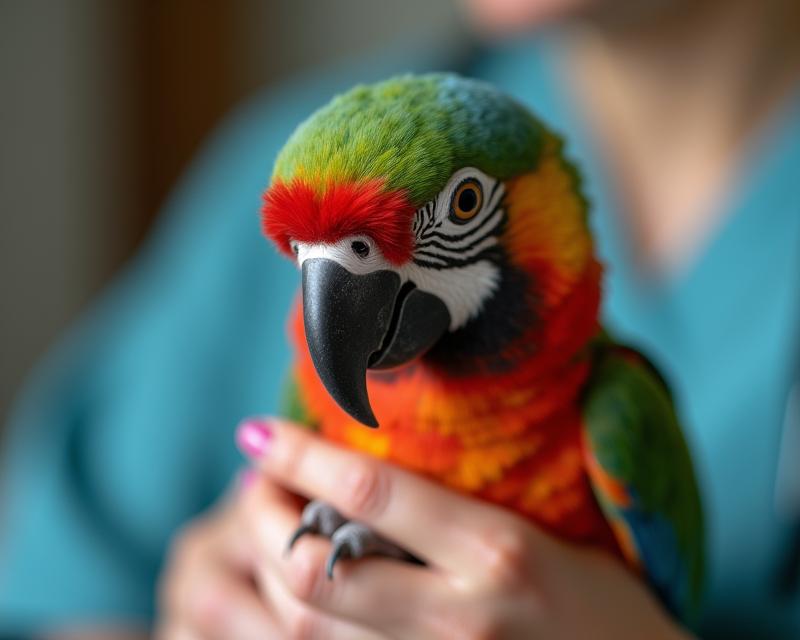Bird Health: Spotting Illness Early
Publish in Health el 29/06/2025 16:35
Common Signs of Illness in Domestic Birds & When to See a Vet
Our feathered friends bring so much joy to our lives! As loving bird owners, we want to ensure they live long, happy, and healthy lives. But sometimes, our birds aren't feeling their best, and recognizing the signs of illness early is crucial. Delaying veterinary care can make conditions much harder to treat. This article will cover some common warning signs and help you determine when it's time to seek professional help.

What to Watch For: Common Signs of Illness
Birds are masters at hiding illness, but there are several telltale signs to be aware of. Changes in behavior are often the first indicators. Is your bird suddenly withdrawn, less active, or spending more time hiding? A loss of appetite or difficulty eating is another major red flag. Pay attention to their droppings – changes in color, consistency, or frequency can signal problems. Also, look for signs of respiratory issues like sneezing, coughing, or difficulty breathing. Feather plucking or excessive preening can also indicate stress or underlying health concerns.
Specific Symptoms to Consider
Here's a more detailed look at some specific symptoms:
- Changes in droppings: Normal droppings have a specific structure. Changes in color (pale, dark, or bloody), consistency (watery or very hard), or frequency should be investigated.
- Respiratory problems: Sneezing, coughing, wheezing, or open-mouth breathing are serious and require immediate attention.
- Feather loss: While some molting is normal, excessive feather plucking can indicate stress, illness, or parasites.
- Lethargy: A significant decrease in activity levels is a cause for concern.
- Weight loss: Even a slight weight loss can be a sign of underlying illness.
When to See a Vet
It's always best to err on the side of caution when it comes to your bird's health. If you notice any of the following, schedule an appointment with an avian veterinarian immediately:
- Difficulty breathing
- Open-mouth breathing
- Lethargy or weakness
- Loss of appetite for more than 24 hours
- Changes in droppings that persist for more than 24 hours
- Visible injuries or wounds
- Feather plucking
Avian vets are specially trained to care for birds and understand their unique needs. Early detection and treatment can significantly improve your bird's prognosis. Don't hesitate to contact a vet if you have any concerns about your feathered companion's health. Regular check-ups are also vital for preventative care and early detection of potential problems.





